I’ll keep the introduction nice and simple: This is a list of books which have had a profound impact on my approach to teaching and leadership.
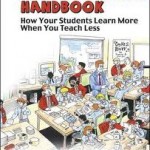 The Lazy Teacher’s Handbook by Jim Smith
The Lazy Teacher’s Handbook by Jim Smith
I resisted buying this book for a long time as the title suggested this was a book to get away with teaching less. In fact, that is partly true but it was about teaching less to ensure that students did all the hard work. For me, this is the perfect kind of educational book to improve teaching- a quick exploration of the topic at hand and then a wealth of practical examples that can be used immediately. “When you become a Lazy Teacher, you will employ a series of strategies that put the responsibility of learning directly and consistently onto the students.” It’s also a book to give to someone who doesn’t really want to read an educational book but who loves teaching. This book left me with a real desire to work a lot smarter.
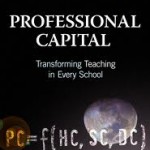 Professional Capital by Michael Fullan and Andy Hargreaves
Professional Capital by Michael Fullan and Andy Hargreaves
In my current role, I am focussed on helping to develop a school culture of collaboration. (See this blog) This book was another important driver behind that: “…teachers who work in professional cultures of collaboration tend to perform better than teachers who work alone.”; “In collaborative cultures, failure and uncertainty are not protected and defended, but instead are shared and discussed with a view to gaining help and support.” I have benefitted tremendously from this already and I can see the ethos of our school continuing to develop into one of collaboration.
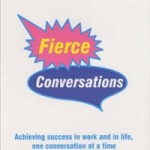 Fierce Conversations by Susan Scott
Fierce Conversations by Susan Scott
This book has transformed my leadership skills. In the past, I would avoid conflict and do anything to have to avoid ‘difficult’ conversations. This meant that I would not always say what I thought if it disagreed with my line managers’ views. I was also avoiding discussing with colleagues things which needed to be discussed because of egos and politeness. Instead, I now have models for how conversations should go and now if a conversation needs to happen then it does happen. The ‘Mineral rights’ method, for example, has been a very powerful tool. This is where you focus on one issue and drill down to the core of it. ‘Fierce’ does not mean aggressive in this context- it means real. Now that I have real conversations and I find that I am happier and more productive.
I found this book chimed with my own experience and that anything I had achieved in my life and career came about through effort and focussed practice. Dweck refers to a growth mindset, where we are open to new ideas and see that success comes from effort whereas a ‘fixed’ mindset is where we believe intelligence is fixed and we cannot develop it. Reading this has changed the language I use in the classroom. It has also served me well whenever students get into the ‘I want to move sets’ frame of mind. We have ‘Can do attitude’ as one of our school rules which seems a little trite but it is very useful to refer to when students say ‘I’m thick’ or ‘I’m never going to get this’. I also understand that mindset is important as a teacher too. I have met teachers who are struggling but who are open to feedback and put in the effort to improve. I know how much I struggled in my first couple of years as a teacher too and how a growth mindset has served me well.
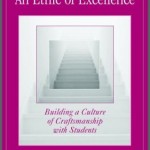 An Ethic of Excellence by Ron Berger
An Ethic of Excellence by Ron Berger
I enjoyed this book for many reasons. (See this blog) It was an inspiring account of a passionate teacher but the book did lead me to really think about true project based learning and how I could apply some of his ideas in my English classroom. At the top of the list was the idea of using authentic audiences which I have experimented with to mixed success. I am convinced that a real audience improves motivation and, above all, the quality of work. Since reading this, my students have performed Shakespeare in schools, taught lessons to primary school students, written letters to the local newspaper and local businesses and are now filming a Shakespeare DVD.
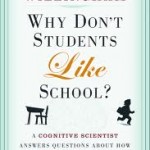 Why Don’t Children Like School by Daniel T Willingham
Why Don’t Children Like School by Daniel T Willingham
Daniel T Willingham is a cognitive scientist. In this book, he explores how we learn things and the implications for the classroom. The examples he uses explain key ideas clearly and in each chapter he goes into further detail about implications for the classroom. This book has had a massive impact on how I approach lesson design and has particularly helped me to ensure that students remember what I have taught them. He encourages teachers to provide opportunities for students to think- and what they think about, they remember. He also makes it clear that factual knowledge (not rote learning) is incredibly important as a foundation for learning.
Here are some other books I love:
Full On Learning by Zoe Elder
Visible Learning for Teachers by John Hattie
High Performers by Alastair Smith
Dancing About Architecture/ How to Teach by Phil Beadle
When Can you Trust the Experts? by Daniel Willingham
Start With Why by Simon Sinek
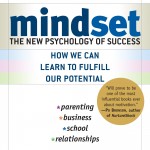
[…] Books to transform teaching and leadership […]